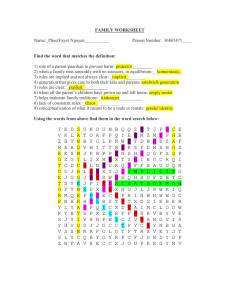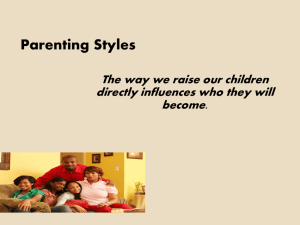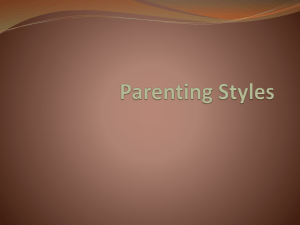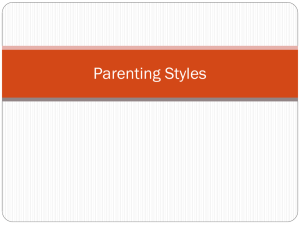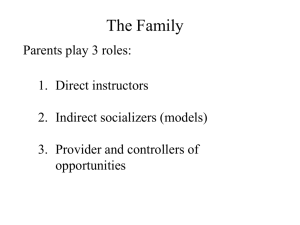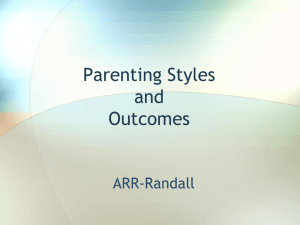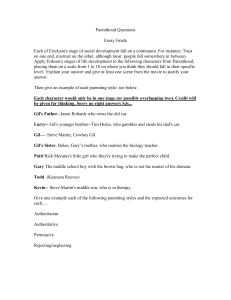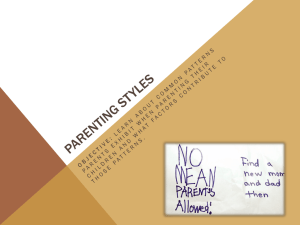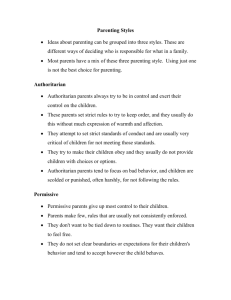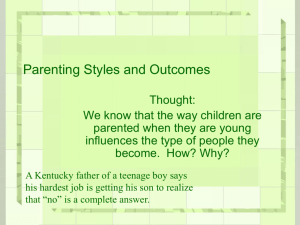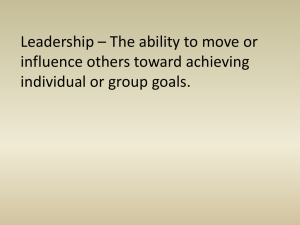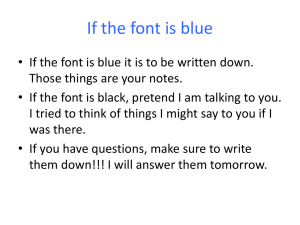Types of Parenting Styles and Outcomes
advertisement
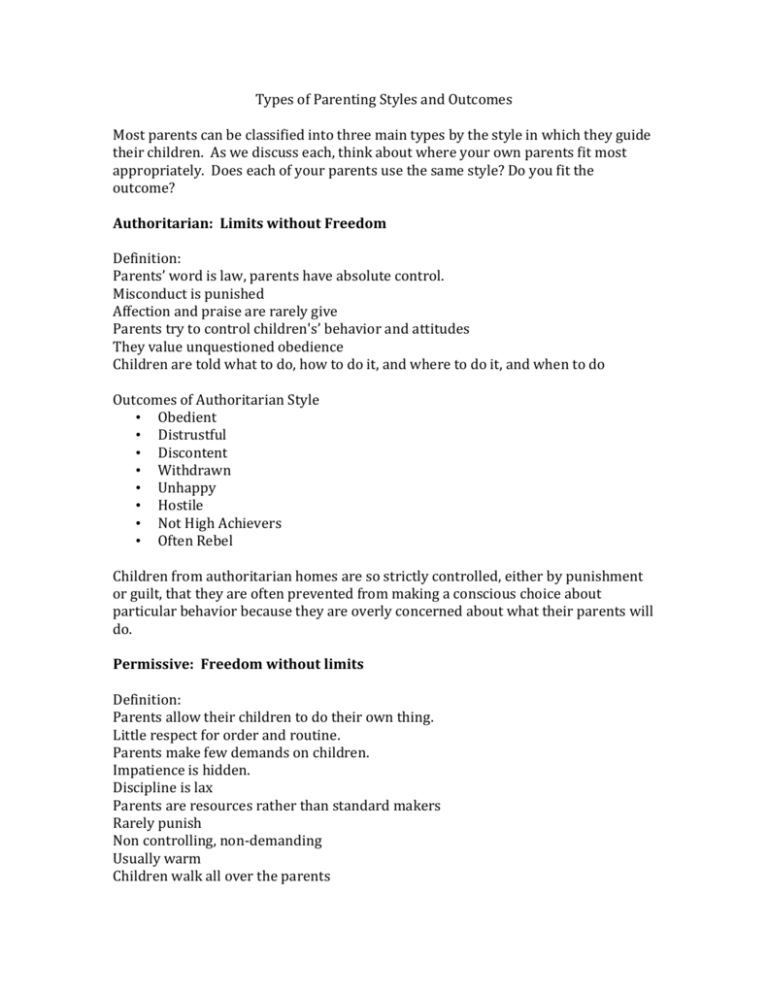
Types of Parenting Styles and Outcomes Most parents can be classified into three main types by the style in which they guide their children. As we discuss each, think about where your own parents fit most appropriately. Does each of your parents use the same style? Do you fit the outcome? Authoritarian: Limits without Freedom Definition: Parents’ word is law, parents have absolute control. Misconduct is punished Affection and praise are rarely give Parents try to control children's’ behavior and attitudes They value unquestioned obedience Children are told what to do, how to do it, and where to do it, and when to do Outcomes of Authoritarian Style • Obedient • Distrustful • Discontent • Withdrawn • Unhappy • Hostile • Not High Achievers • Often Rebel Children from authoritarian homes are so strictly controlled, either by punishment or guilt, that they are often prevented from making a conscious choice about particular behavior because they are overly concerned about what their parents will do. Permissive: Freedom without limits Definition: Parents allow their children to do their own thing. Little respect for order and routine. Parents make few demands on children. Impatience is hidden. Discipline is lax Parents are resources rather than standard makers Rarely punish Non controlling, non-demanding Usually warm Children walk all over the parents Outcome of Permissive Parenting • Aggressive • Least self—reliant • Least self-controlled • Least exploratory • Most unhappy • Aggressive • Least self—reliant • Least self-controlled • Least exploratory • Most unhappy Children from permissive homes receive so little guidance that they often become uncertain and anxious about whether they are doing the right thing. Democratic: Freedom within limits. Definition: Middle ground between the two above Stress freedom along with rights of others and responsibilities of all Parents set limits and enforce rules Willing to listen receptively to child’s requests and questions. Both loves and limits Children contribute to discussion of issues and make some of their own decisions Exert firm control when necessary, but explain reasoning behind it. Respect children’s interest, opinions, unique personalities. Loving, consistent, demanding Combine control with encouragement Reasonable expectations and realistic standards. Outcomes of Democratic Style • Happy • Mostly self-reliant • Mostly self-controlled • Content, friendly, generous • Cooperative • High-achiever’ • Less likely to be seriously disruptive or delinquent Children, whose parents expect them to perform well, to fulfill commitments, and to participate actively in family duties, as well as family fun, learn how to formulate goals. They also experience the satisfaction that comes from meeting responsibilities and achieving success. Parenting Styles Situations Name______________________________ Assignment: How would each type of parent respond to the following situations? D –democratic, P – permissive, and A- authoritarian 1. Tommy is throwing a ball in the living room and knocks over a lamp. DPA2. Nicole is throwing sand at the other kids in the sand pile. DPA3. Your three children are bickering in the backseat while you are driving on the interstate. DPA-
